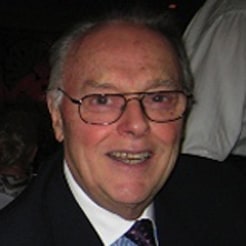
Power is Everyone’s Business
Power is one of the most misunderstood – and often vilified – concepts in our society. This is the way Julie Battilana, Harvard professor of Organizational Behavior and Social Innovation, and Tiziana Casciaro, University of Toronto professor of Organizational Behavior, describe it in Power, for All: How It Really Works and Why It’s Everyone’s Business.
Their book offers a timely, democratized vision of power and how to wield it for good. Once everyone understands how power operates, they explain, we can engage with it to take action to protect our freedoms and improve life for ourselves, our coworkers, and broader society.
Organizational power is often defined as the ability to influence the behavior of another stakeholder in our company. Our power is measured by the extent to which we can use our influence to get stakeholders to do something that they would otherwise prefer not to do.
According to Battilana and Casciaro, power is often misunderstood, and it is one of the world’s most talked about subjects because it is an inherent part of our daily lives. They describe three pernicious fallacies regarding power today:
- Power is a thing one possesses, and that some fortunate individuals have special traits enabling them to acquire it.
- Power is positional, reserved for kings and queens, presidents, generals, board members, CEOs, and the rich and the famous.
- Power is vile and acquiring and wielding it entails manipulation, coercion, and cruelty. Power fascinates and repulses us at the same time.
In reality, there is nothing intrinsically dirty about power, although the potential to become corrupted by it always exists; its energy is essential if we wish to achieve positive ends as well.
Our societal misunderstanding of power is catastrophic, Battilana and Casciaro write, because it makes us less likely to identify, prevent, or stop abuses of power, which threaten our freedoms and well-being. The real dynamics of power, however, can be taught and learned. Understanding the dynamics of power is the key not only to pursuing our personal objectives, but also to participating effectively in shaping our collective future. We can even survive a political attack in our company if we know the sources of our power, and use them effectively.
- First, perform our jobs and perform them well.
- Second, optimize our strengths and minimize our weaknesses. This means that we should feel free to totally ignore the advice that some leaders and experts give about focusing on our strengths only.
- Third, identify our sources of company power and use them appropriately to maintain our company standing. Use coercive, reward, and legitimate power wisely. As we utilize these powers, always make sure that our actions account for our company culture with its standards of acceptable and unacceptable behavior.
Battilana and Casciaro conclude by stating that the distribution of power affects every one of us personally. There are always things we can do to change the distribution of power in any given situation. If we can determine what the other party needs and wants and find ways to give them access to these valued resources, we can change the balance of power. How we choose to use this knowledge in our families, our workplaces, and in society is up to us both individually and collectively. It is to understand, build, and use our individual rights and freedoms and to fight unjust power hierarchies. This requires each one of us to recognize that power – like leadership – is everyone’s business.
- About the Author
- Latest Posts
Vice President Emeritus for Learning Technologies Donald Smith, Ed.D, CPT, headed ME&A programs in learning, leadership, and performance enhancement. He stayed with the firm in his retirement, bringing more than 65 years of experience as a coach, designer, facilitator, evaluator, manager, educator, and organizational change architect in more than 40 countries. He is affectionately known as ME&A’s MENCH.



